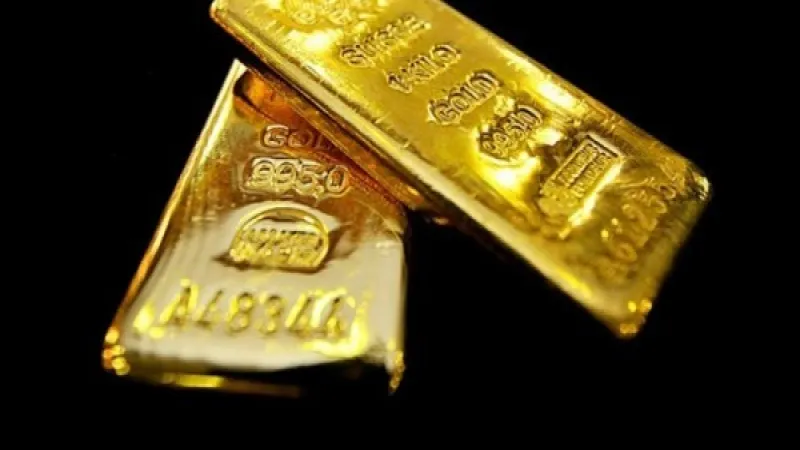Police raided several suspected sites in İstanbul on Nov. 14 for a human trafficking ring, arresting several Iranians and seizing a cache of gold amounting to 5.5 kilograms as well as hundreds of thousands of dollars and euros. In another incident on Dec. 2, police in the city of Amasya searched a suspected passenger bus and found 13 kilograms of gold as well as smuggled cigarette packets from Iran. There have also been other incidents involving Iranians smuggling gold, especially in the provinces bordering Iran. It looks like parts of Turkish gold exported to Iran is finding its way back to Turkey again via crime syndicates that use Turkey as a base of operations for all kinds of illegal and illicit activities. It should not come as a surprise that some of this gold was in fact transferred to the terrorist Kurdistan Workers' Party (PKK) to finance its criminal enterprise in Turkey as well.
It appears Turkey is acting like she is the only smart gal in town, with the government turning a blind eye to growing gold sales to Iran as part of the payment for oil and gas purchases made from the country in the last six months. Ankara may not be violating the letter of unilateral financial sanctions that were imposed on Iran back in March by the US government, but in effect it has been flagrantly infringing upon the intent and spirit of this US law and possibly other US legislation that targets Iran, inviting the wrath of Washington and possibly putting the integrity of the Turkish financial system at risk.
We have known for some time that American officials have been putting their Turkish counterparts on notice for these transactions, with special attention being made to the trade in local currency with Iran. Since the US is having difficulty in tracking transactions made in local currency, US officials have raised this issue with regard to Iran on more than one occasion. They did the same with the Chinese and Indians as Iran is also trying to skirt sanctions using the renminbi and rupees. The Senate bill that was adopted last Friday puts gold on a list of items that are barred from being sold to Iran in revised sanctions against the regime.
According to the gas and oil sales contracts, Turkey is supposed to pay Iran in US dollars or euros and deposit the money into Iranian accounts belonging to Iranian gas and oil companies in Turkish banks. This was partially changed in recent years as trading local currency was introduced in bilateral trade between the two countries. Since Iran was ejected from the Society for Worldwide Interbank Financial Telecommunication (SWIFT) international electronic banking system, Tehran has asked Turkey to deposit the payment in Turkish lira rather than foreign currency. Gold is purchased by Iran with this money and taken out of the country as export goods rather than converting lira deposits into dollars or euros, which is simply not possible under existing sanctions.
On Nov. 22, during budget discussions in the parliamentary Planning and Budget Commission, Turkish Deputy Prime Minister Ali Babacan revealed this scheme to the public, saying that the main reason for the spike in gold sales was Turkish imports from Iran. He said the only thing the Turkish government does is to deposit money in lira into Iranian accounts and does not interfere with the gold purchases made by Iranian companies in the Turkish market.
Only eight days before Babacan made the disclosure, Turkish Economy Minister Zafer Çağlayan defended gold sales to Iran in the same commission. "It is my job to sell gold to any country in the world, whether that be Iran or the United Arab Emirates [UAE], and here we had a $4 billion deficit in gold trade last year while we are having a $4 billion trade surplus in gold this year.” Çağlayan argued that if Turkey did not give gold to Iran, there would be another country that would have supplied the same gold to Iran. "This has to do with demand,” he noted.
Here is the fallacy in this logic, however. Turkey is the sole buyer of Iranian natural gas in the world and the only way for Iran to get gas payment money out of Turkey is to purchase Turkish gold, either directly or rerouting through other hub countries like the UAE or non-EU member Switzerland, in which Turkish gold exports soared to unprecedented levels in recent months. Of course, Iran, with decades of experience on how to circumvent sanctions, may come up with other clever plans to get what it wants with gas money in Turkey.
According to Çağlayan, Turkey earned $10.7 billion from gold exports this year. That, in rough figures, breaks down to $6.5 billion to Iran, $3.5 billion to the UAE and the rest to other countries. He argues that there are at least 20,000 different categories of Turkish export items and that there is no need to focus on one single item like gold. He argues that Turkey has no choice but to purchase Iranian gas. "If others have alternative solutions for us, let's sit down and examine these, but there is no such thing possible at the moment," he was quoted as saying.
Considering that Turkey's own gold production is worth some $2.5 billion this year, and there is some $9 billion worth of bank deposits in gold owned by Turkish consumers, the gold sold came partially from Turkey's own production stocks or private gold deposits, while the rest was made up of imports. Çağlayan explained that, from gold production, suppliers make $2.5 or $3 profit for the sale of one kilogram of unprocessed raw gold, corresponding to a nice profit for the Turkish gold industry. If we take Turkish Customs and Trade Minister Hayati Yazıcı's figures, Turkey exported 292,073 kilograms of gold as of Aug. 31. That means gold exporters made three-quarters of $1 million in profit, to say the least. Since the government removed the 18 percent customs fee levied on gold imports as of Jan. 1, this has brought another $100 to $200 advantage per kilogram to jewelry traders in Turkey, creating booming trade activity in gold and attracting Iranian buyers.
Though the Turkish ministers' figures represent outdated figures, the most up-to-date data released by the Turkish Statistics Institute (TurkStat) state that Turkey's gold exports rose to a record $12 billion; a tenfold rise on the $1.2 billion increase in 2011. The rise in October alone was 14-fold on the year to $1.2 billion. That means further benefits to Turkish traders and the government accounting books. Economy Minister Babacan tried to dispel doubts that soaring gold exports to Iran have improved economic figures for Turkey, most specifically the chronic current account deficit (CAD) problem by narrowing it with a 7 percent drop. He noted that TurkStat has carefully factored gold sales in its calculations that are in line with global standards for statistics and was right to classify gold sales as export goods rather than currency tender. Yet the shadow cast on Turkey's export figures from gold sales to Iran is there and the perception is unfortunately not good.
Considering that there is a lot going on in Turkey's troubled neighborhood, Washington may feel the need to go easy on Ankara at the moment because it needs Turkey on its side to face challenges in the Middle East and North Africa. But to what extent the US will budge on these concerns is an open question.










